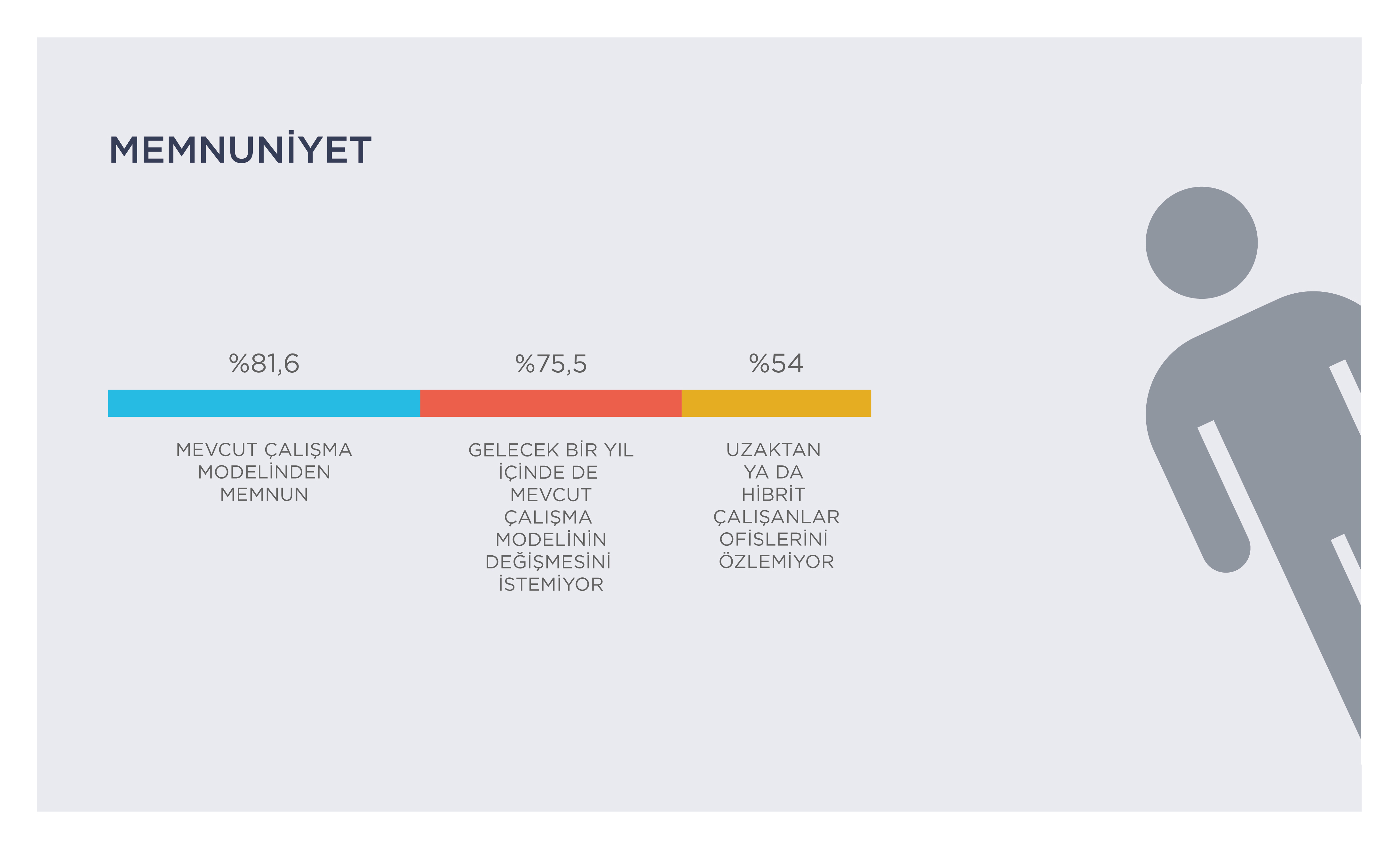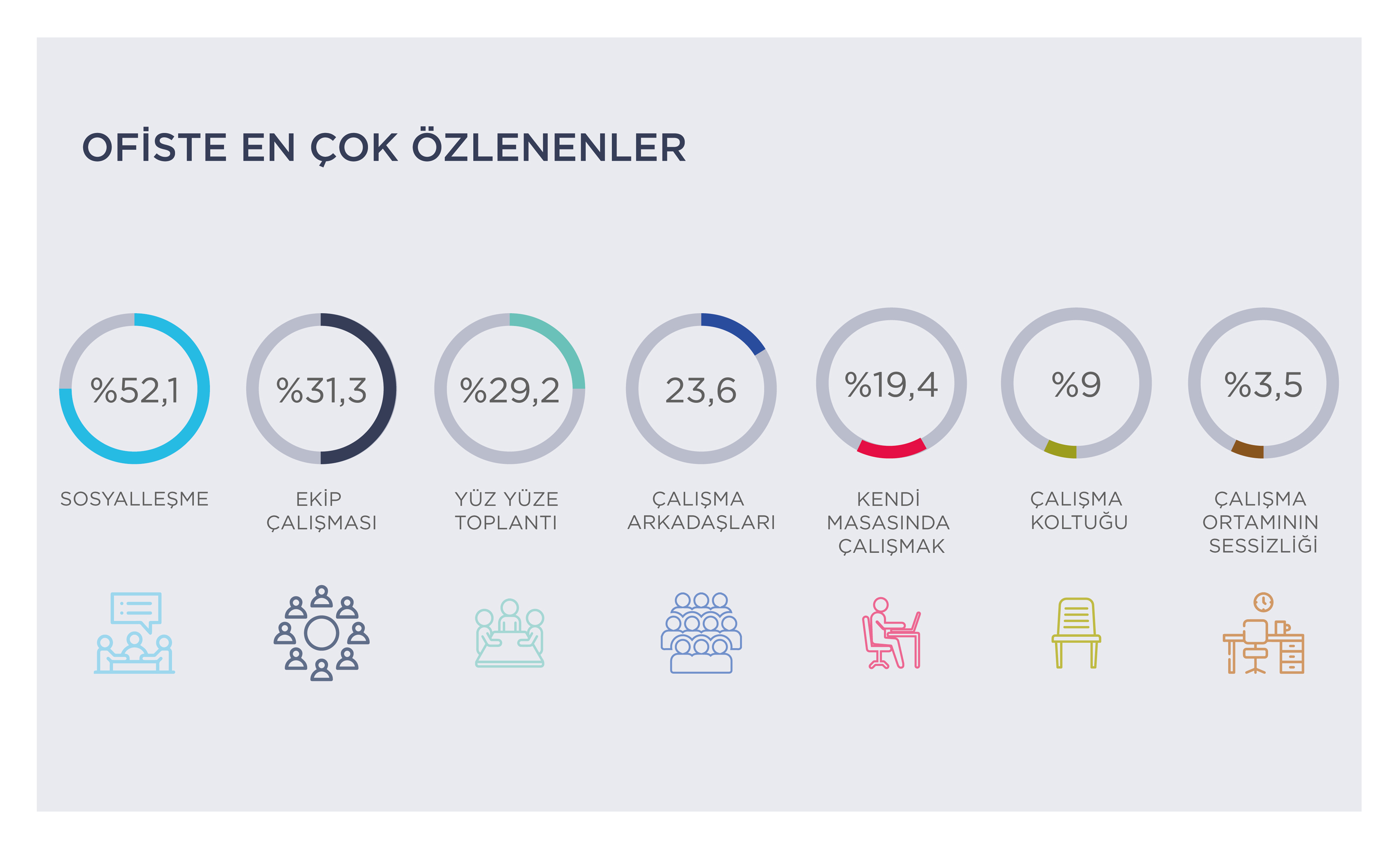Dilemma of socialization needs and remote working
Dilemma of socialization needs and remote working
In our second research study at Zivella, focusing on the pandemic's impact on work models and habits, we found that employees most missed socializing, teamwork, and face-to-face meetings.
As highlighted in our blog post about the hybrid work model, nearly two years of working from home/remote working made both employees and managers better understand the importance of face-to-face communication, teamwork, idea sharing, and socialization. However, the changes in work practices brought about by the pandemic created a dilemma for both employees and companies: the need for socialization and remote working. Let's examine this dilemma based on our research findings.

Majority do not want a change in work model
Our survey found that 60.8% of participants work in an office, 14.6% remotely, and 24.5% in a hybrid model. 81.6% of participants are satisfied with their current work model, and 75.5% do not wish for it to change in the next year. Given the ongoing pandemic conditions and continuing health concerns, these results are not very surprising. On the one hand, companies have noticed that operations continue smoothly with the current working model while also reducing fixed costs, thus making this work model the 'new normal'. Many major global companies have announced their decision to make the hybrid work model permanent.
Half of the employees do not miss their offices
Since the onset of the pandemic, employees have become so accustomed to their current working styles and the comfort of their home-offices that 54% of the remote or hybrid workers in our survey said they do not miss their offices. However, what employees miss the most and feel the lack of is socializing. 52.1% of participants most missed socializing. Even though they are quite content working in isolation and managing their time in home-offices, they greatly miss face-to-face team collaboration (31.1%) and meetings (29.2%) because we are social beings. It wouldn't be wrong to say that we better understood the need to spend time and talk with work colleagues when we lacked it.

Due to the prolonged period, many had to set up a workspace in their homes, including an ergonomic and comfortable work desk and chair. A small percentage of our survey participants most missed working at their own desk (19.4%), their office chair (9%), and the quietness of the office environment (3.5%). It's understandable, especially for those living in crowded homes or without a separate workspace, to miss the comfort of their office desks and chairs.
As we mentioned earlier, while we enjoy the convenience of working in our home-offices, as social beings, we need each other. Therefore, it seems that post-pandemic, rather than completely remote working, a hybrid model will likely be the most suitable solution to meet employees' needs for socialization. This way, companies can reduce their fixed costs while also ensuring employee satisfaction.
We will continue to delve deeper into the results of our research in our upcoming blog posts.
Latest Articles
-
Human-Centred Design: Ergonomics 4.0 in Office Furniture
-
When Design Meets Fashion: The Role of Aesthetics and Style in Workspaces
-
Thinking Through Textures: Sensory Experience Design in New Office Trends
-
The Power of Modularity: Infinite Combinations, Endless Creativity
-
New Balances Between Craftsmanship and Mass Production
-
Flexibility, Sustainability, and Functionality: The Contribution of Modular Furniture to Design
-
Sustainability and Flexibility Take Center Stage in 2025 Office Design
-
2025 Office Design Trends
-
Shaping the Future with Sustainable Materials
-
The Future of Office Design: A Performance-Based Approach
-
2024 Office Furniture Trends: Innovative and Dynamic Workspaces
-
How to Design an Efficient Office
-
Office Furniture Use in the Tourism Sector
-
Furniture in Co-working Spaces is Simple, Colorful and Modern
-
New Generation Offices for Gen Y and Z
-
Office Furniture Use in the Education Sector
-
We Will Be Back to Office Despite Everything
-
Resimercial Design in Modern Workplaces
-
Ergonomics = Comfort + Ease + Efficiency
-
A Few Tips for Home Offices
-
Offices Meeting the Expectations of Generations Y and Z
-
Shape of Tomorrow
